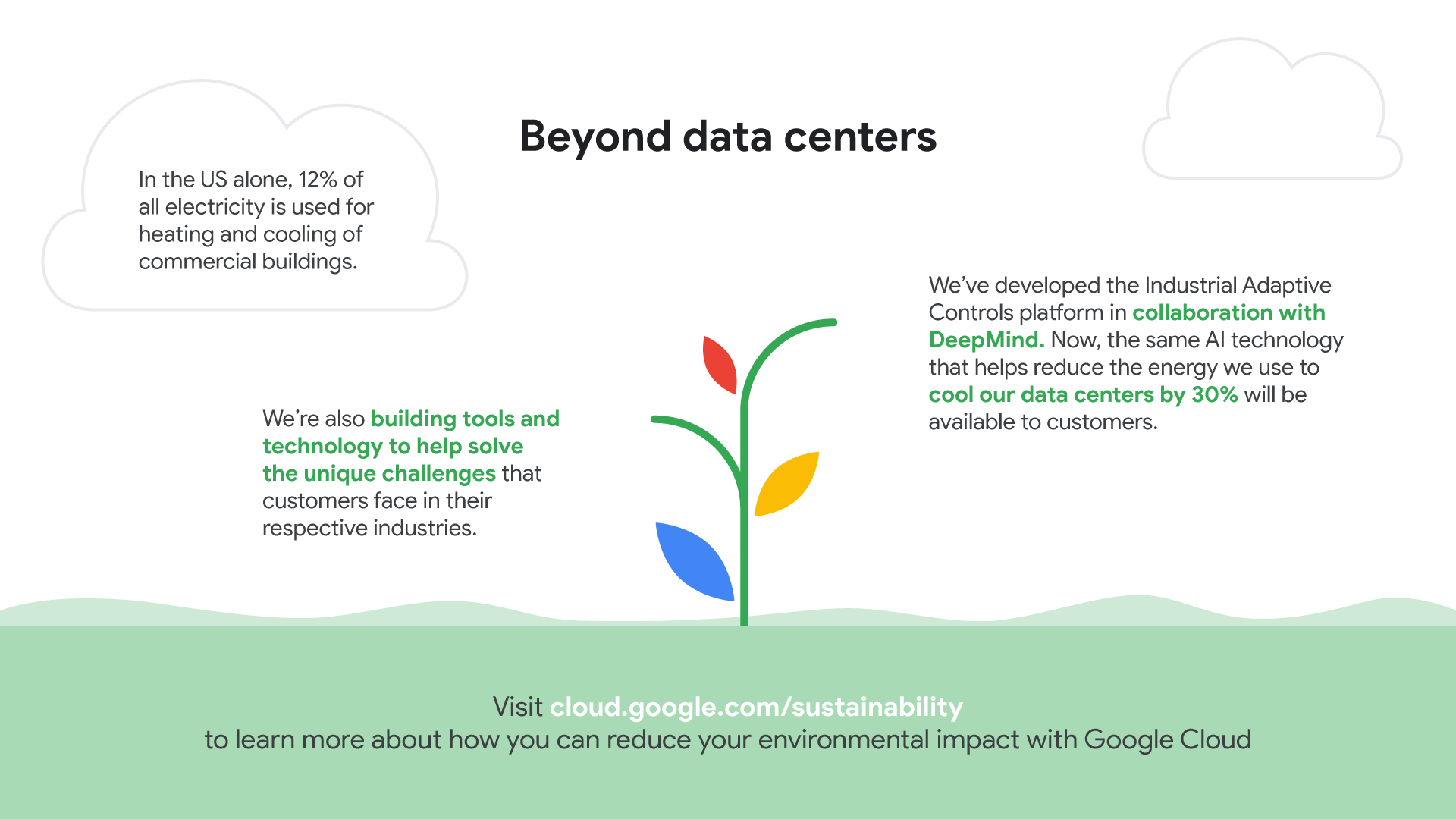This week Google announced its ‘round the clock’ clean energy for the cloud. This came just 1 week after they announced their carbon footprint was now zero, meaning Google has compensated for all the carbon it has ever created.
This is a great start.

However, the announcement has some really interesting themes for the cloud beyond green.
70% of all enterprise cloud customers pay for but do not consume at least 3x more in the cloud that they need.
A further 10% using at least 2x more. Google’s green ambitions are in direct competition with its 5-year cloud growth plan.
Why is that the case? You could imagine it like this for example.
You ask your partner to get some potatoes for the supermarket for a recipe you are cooking. They ask “how many?”, you’d probably say 2 or 3.
What they might not ask is:
- How big?
- What type?
- Will you boil, bake or fry?
- Organic, finest?
- What’s the budget?
After all, they are just potatoes.

For your recipe you actually needed 1 potato, you asked for 2 or 3 and they got you 4. We believe more potatoes, more excess will surely result in even more ‘personal’ security.
Organisations do exactly the same with the cloud.
All of the cloud big players are there waiting to sell you your own comfort, your own safety net.
The problem of having too much is it can slow innovation.
Your flexibility to change as an organisation can be severely limited by long term commitments, reserved instances, cloud credits etc. These are all offered to make you more comfortable to sign a ‘big’ cloud deal.
Great companies think about creating small, flexible and portable applications in the cloud with very specific outcomes. They want a smaller cloud estate, not a bigger one.
A final thought…
An example of a real migration to AWS. This company was on the verge of signing a $100m multi-year cloud deal. Looking at the data you could very clearly that they only needed to spend in a worst-case $50m. Best-case $25m.
This would have meant less ‘personal’ security, less chance of a meeting with Andy Jassy, less of an empire.
What would you have done?
Thomas
You can sign up for more ‘unconsidered needs’ below.
Sign up now for more ‘unconsidered needs’.
